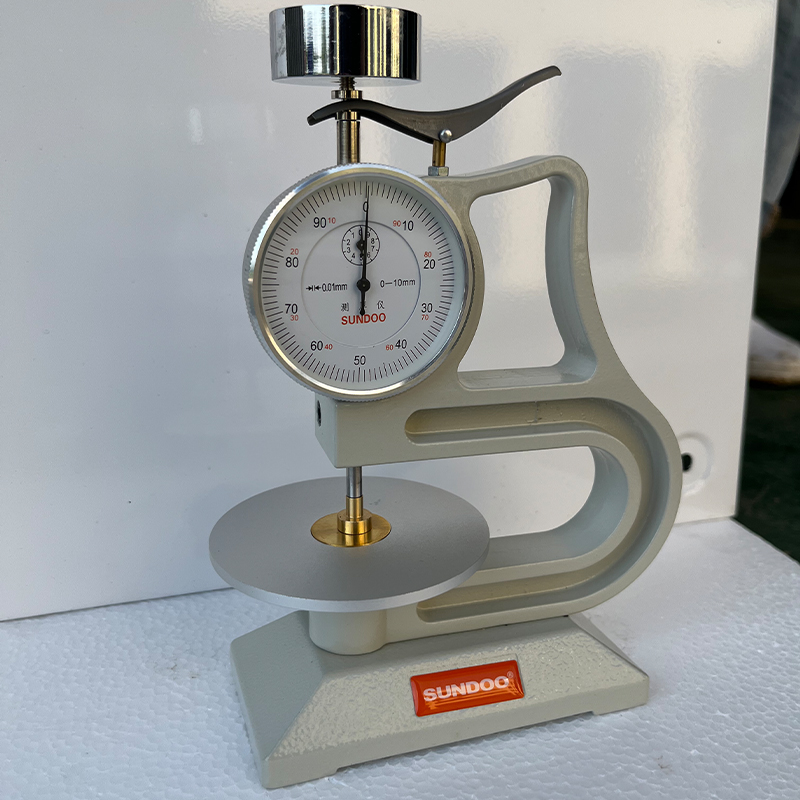Tensile Testing Equipment for Material Strength Evaluation and Analysis
Understanding the Tensile Test Machine A Key Tool in Material Science
The tensile test machine, also known as a tensile testing machine or tensile tester, is an essential instrument in the field of materials science and engineering. It is used to determine the mechanical properties of materials—especially their strength, ductility, and elasticity—by subjecting a sample to a controlled tensile load until failure occurs. This process provides crucial insights into how materials behave under stress, allowing engineers and scientists to design safer and more effective products.
The Principle of Tensile Testing
At the core of tensile testing is the principle of applying a uniaxial load to a specimen. The tensile test machine typically consists of a loading system, grips to hold the specimen in place, and a measuring system to monitor the material's response to the applied force. The specimen, usually shaped as a standardized dog bone or flat strip, is secured in the machine's grips. The machine then pulls the specimen apart at a constant rate, recording the force applied and the resultant elongation of the material.
The data collected during the test is plotted on a stress-strain curve, which represents the relationship between stress (force per unit area) and strain (deformation relative to the original length). This curve provides valuable parameters such as the yield strength, ultimate tensile strength, and elongation at fracture, which are critical for understanding the material's performance in real-world applications.
Types of Tensile Testing Machines
Tensile testing machines come in various configurations, each suited for different testing needs. The most common types are
1. Universal Testing Machines (UTMs) These machines can perform both tensile and compressive tests and are equipped with versatility for various materials.
2. Electromechanical Testing Machines These machines use electric motors for precise control of the load and displacement, making them suitable for high-accuracy tests.
3. Hydraulic Testing Machines Known for their high force capacities, these machines are often used for large-scale materials testing and can accommodate larger specimens.
4. Micro Testing Machines These machines are designed for testing small samples, allowing researchers to study the properties of micro-scale materials or thin films.
tensile test machine

Applications of Tensile Testing
The applications of tensile testing are vast and span multiple industries, including construction, automotive, aerospace, and manufacturing
. Some of the key applications include- Quality Control Manufacturers use tensile testing to ensure that their products meet specified mechanical properties and safety standards.
- Material Development Researchers utilize tensile testing to study new materials, such as composites and alloys, facilitating development for specific applications.
- Failure Analysis Investigating the failure of materials—whether in accidents or unexpected breakage—often involves tensile tests to understand the cause of failure and prevent future occurrences.
- Product Design Engineers rely on data from tensile tests to design components that can withstand specific loads and stresses in real-world applications.
Benefits of Tensile Testing
The benefits of using a tensile test machine are significant. It provides a standardized method for assessing material properties, allowing for consistent comparison across different materials and designs. This testing is crucial for risk assessment and preventive measures in engineering, ensuring that structures and products do not fail under operational loads.
Additionally, the data obtained from tensile tests contribute to material databases, enhancing knowledge and understanding of how materials behave under various conditions. Such insights pave the way for innovations in material science and engineering practices.
Conclusion
In conclusion, the tensile test machine plays a pivotal role in understanding and analyzing the mechanical properties of materials. Its ability to deliver precise and reliable data is invaluable to various fields, influencing the safe and efficient design of everyday products and structures. As technology advances, we can expect even more sophisticated tensile testing machines that will enhance our understanding of materials and their capabilities, further supporting innovation and safety in engineering practices.
-
The Role of Tensile Force Testers in Quality Control and Material Science
NewsAug.01,2025
-
Maintenance and Safety Tips for Aging Ovens
NewsAug.01,2025
-
Density Balance in Forensic Science
NewsAug.01,2025
-
Advanced Optical Measurement Technologies
NewsAug.01,2025
-
A Buyer’s Guide to Tensile Test Machines
NewsAug.01,2025
-
Why the Conductor Resistance Constant Temperature Measurement Machine Redefines Precision
NewsJun.20,2025
 Copyright © 2025 Hebei Fangyuan Instrument & Equipment Co.,Ltd. All Rights Reserved. Sitemap | Privacy Policy
Copyright © 2025 Hebei Fangyuan Instrument & Equipment Co.,Ltd. All Rights Reserved. Sitemap | Privacy Policy
